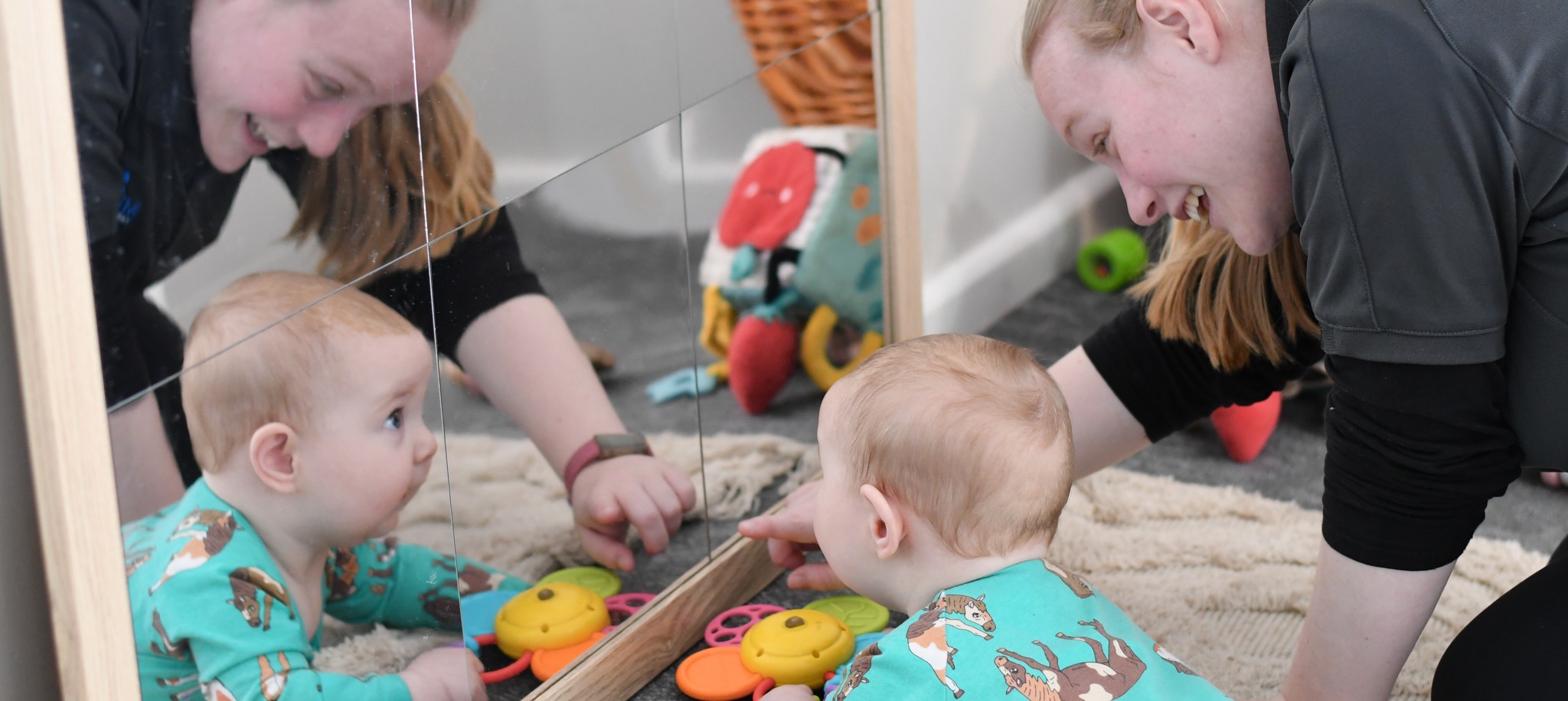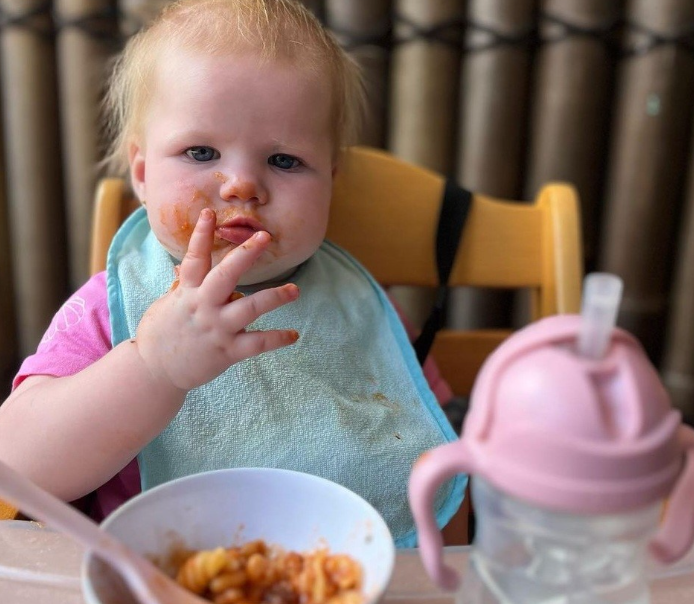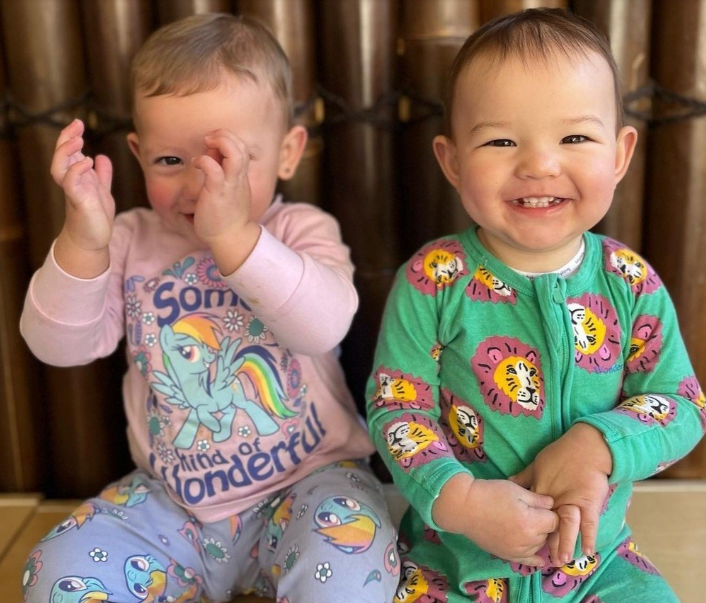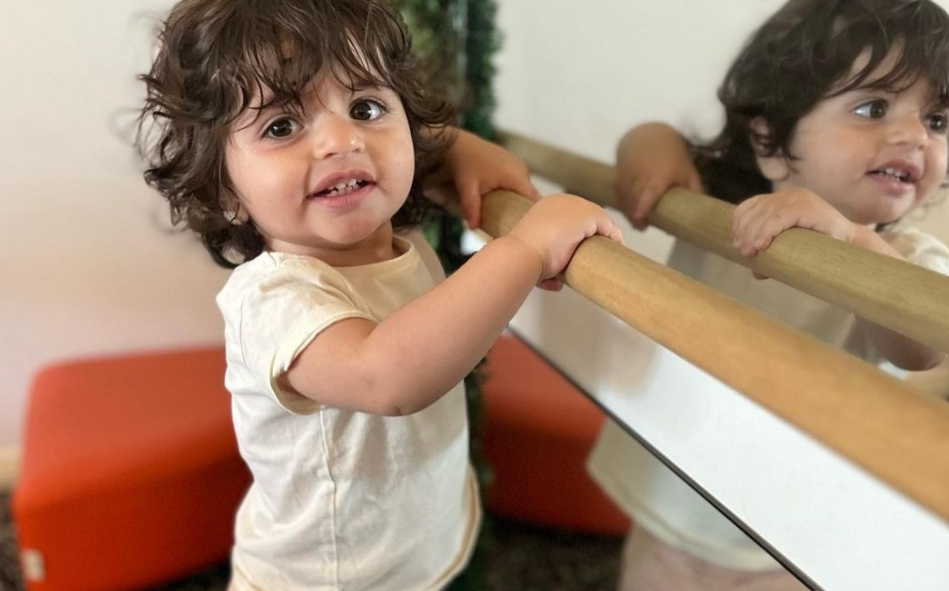
The journey begins when your young child's education starts in the early childhood centre. Setting up orientation days and helping your child adjust to the new environment, new people, and new routines can be challenging. Your child is likely to experience anticipated behaviour, such as separation anxiety. In this article, we have highlighted what our Lifelong Learning Curriculum—Healthy Beginning offers for young children and gathered some evidence-based tips for you to ease the transition to our centre.
Many parents are curious about their baby's experience after commencing care in an Early Childhood setting. In the early weeks, it is best to take things slow and allow time for your baby to process all the learning in our Healthy Beginning Curriculum. You may expect your baby to exhibit the following behaviours:
Endless new ways to communicate!
Early Education provides a fantastic avenue for babies to socialise! You may start hearing different 'noises' at home, such as babbling, cooing and crying. Your baby may also start recognising and responding to voices and facial expressions.
New skills and starting to assert their independence
Exposure to various learning experiences in an Early Education setting can contribute to your baby's developmental milestones. Babies acquire new skills and lifelong learning dispositions from a more structured routine, such as crawling and self-feeding!
Sleep and Emotional adjustment
Babies may want some extra food and cuddles from you after starting care at an Early Childhood centre. Their brains have so much to process during the day, which may also affect their sleep.
What parents can do in the settling period: Tips for the early weeks transition
Affinity Early Childhood Educators are highly qualified and experienced with settling young children into the routine. Please reach out to Healthy Beginnings room Educators; they can suggest options for your child and family.
Here are some helpful tips that you can use to make the transition into an Early Childhood Centre smoother
It is important to build a relationship with the Educators. When your child sees that you have a good relationship with their Early Childhood Educator, they are more likely to feel secure and trusting in that environment. Demonstrating your trust in the Educator will make your child more likely to trust them.
Stay and play with your child
It is recommended to spend some time with your child as they adjust to being away from you in our Early Childhood Centre. You can engage in activities such as reading a book together, playing quietly, or watching your child participate. As you and your child become more familiar with the environment, you can gradually reduce the time you spend together. The first days will help establish a drop-off routine that works for you and your child.
Remember to say goodbye at the drop-off time
When it is time for you to go, it is important to let your child know you are going and when you will return. Give your child a warm hug and kiss, say goodbye to their Educator, and leave promptly, as this helps them settle down with their Educator easily.
'All about me' Forms
These forms are a helpful tool Educators use to ensure there is consistency between the routines and rituals from home and daycare centres. The information from these forms is a starting point for establishing meaningful relationships with children and families. This starting point establishes a Circle of Security for children and primary caregiving practices.





